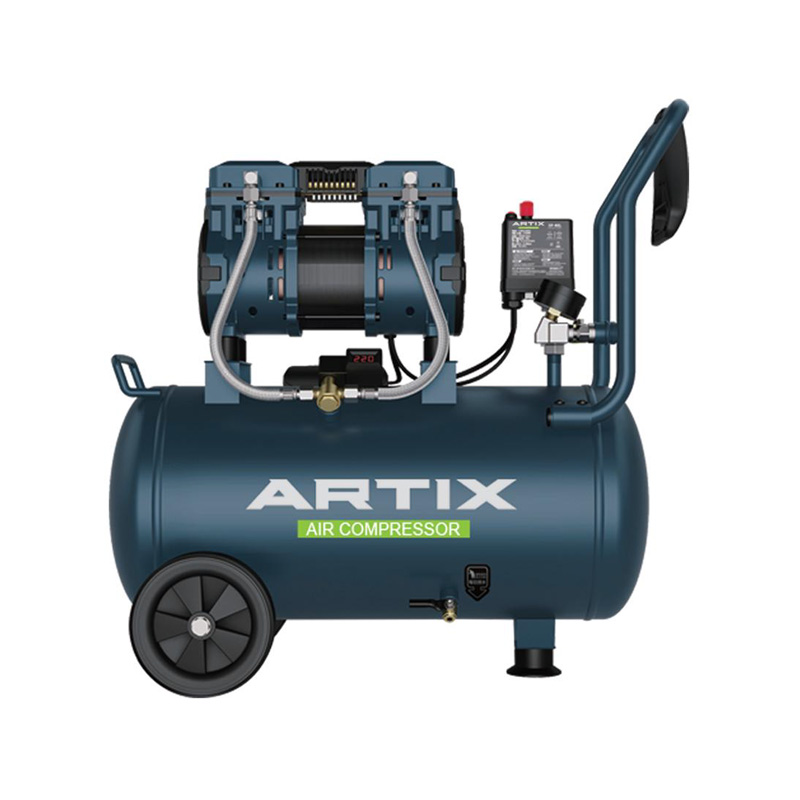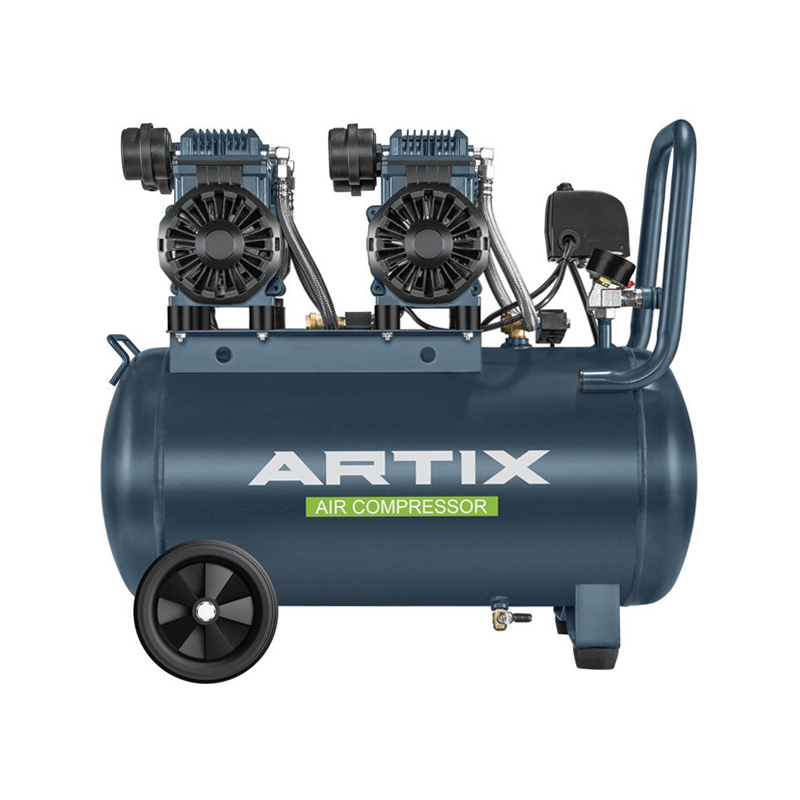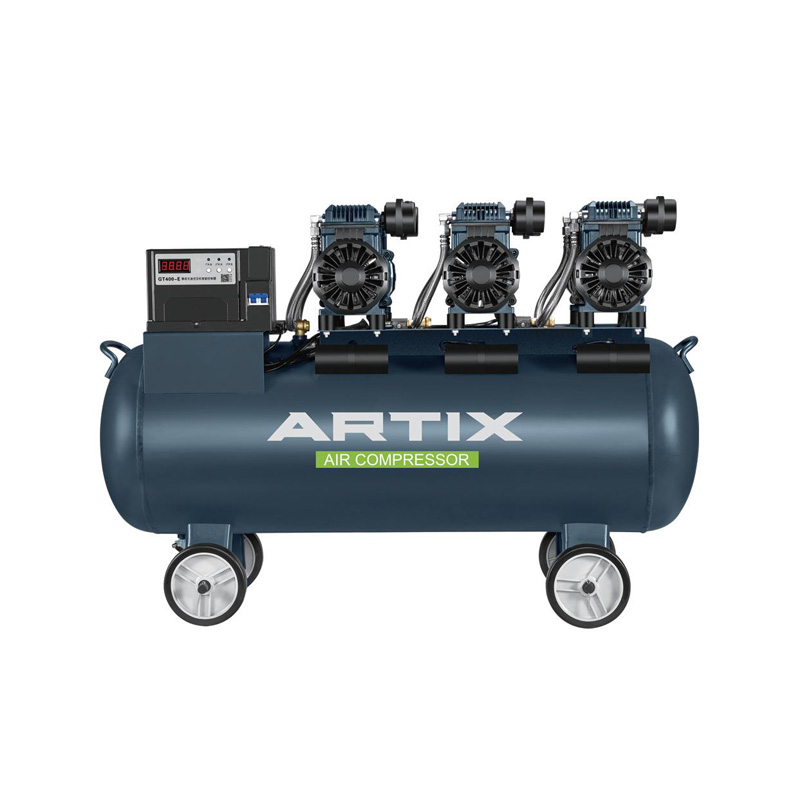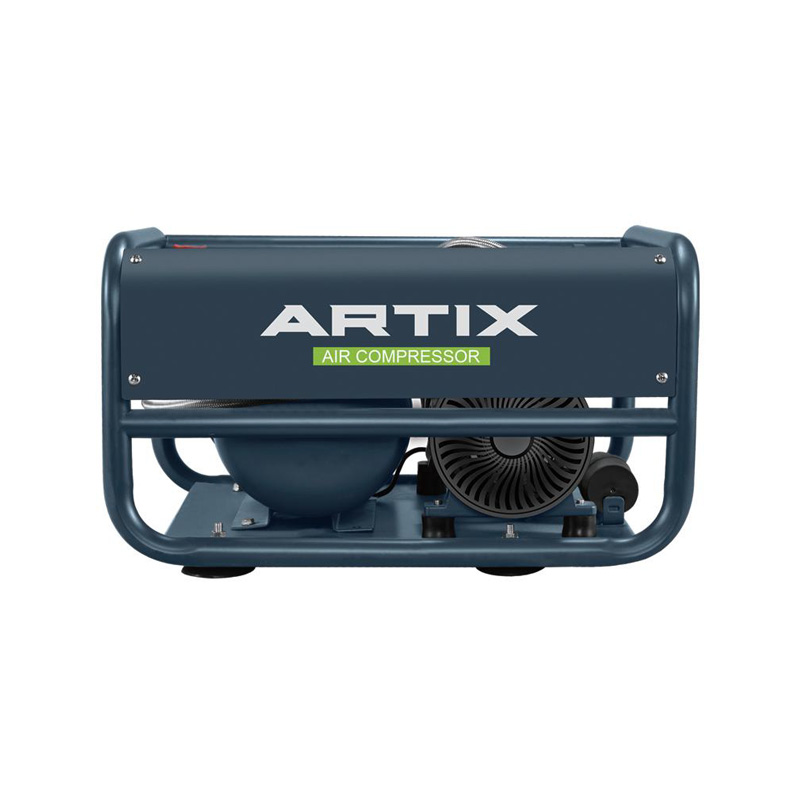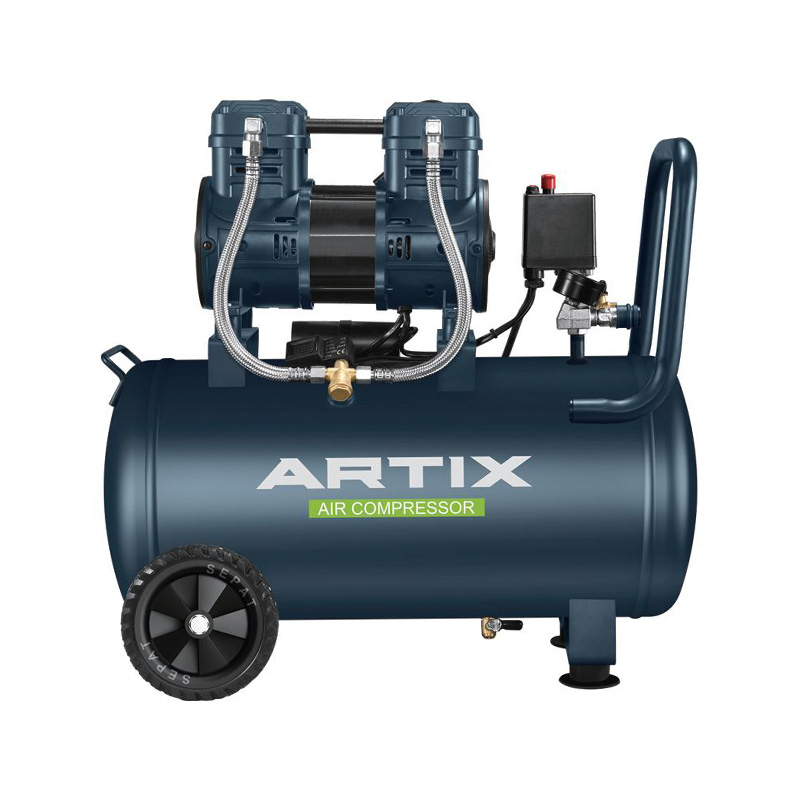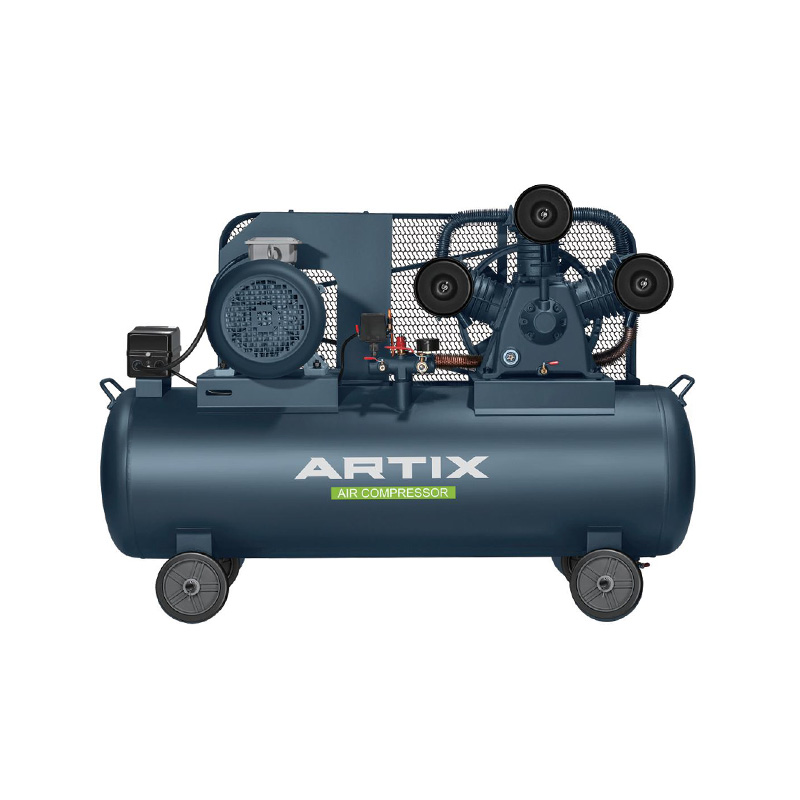Oil-free compressors have become a significant innovation in various industries, particularly in medical and portable applications. With the growing demand for air compressors that are not only reliable but also environmentally friendly, oil-free models have gained traction due to their ability to provide clean, dry air without the need for oil lubrication. Whether it's for medical purposes or portable applications, oil-free compressors offer a practical solution for achieving consistent air flow while less maintenance and operational costs.
What are Oil-Free Compressors?
An oil-free air compressor is designed to operate without the need for oil in the compression process. This eliminates the risk of oil contamination in the air and ensures a cleaner, safer working environment. Unlike traditional air compressors, which rely on oil to lubricate the moving parts and prevent friction, oil-free compressors use alternative methods such as piston rings, diaphragm systems, or ceramic coatings to reduce wear and tear on the components.
Applications of Oil-Free Compressors
Oil-free air compressors have a broad range of applications, with one of the more important being in the medical field. Medical facilities require compressors that supply clean, dry, and contaminant-free air to support various equipment, including breathing machines, ventilators, and anesthesia machines. Oil-free medical air compressors provide the assurance that no harmful oil particles will be introduced into the air, making them an essential part of a medical facility’s infrastructure.
Portable oil-free compressors are another versatile option. These compact machines offer flexibility in a wide variety of industries, including construction, manufacturing, and DIY projects. The portability of oil-free compressors means that workers can easily transport them from one job site to another without worrying about oil spills or the hassle of oil changes. Additionally, portable oil-free compressors are often quieter and more energy-efficient than their oil-lubricated counterparts, making them ideal for environments where noise and energy consumption are important considerations.
Advantages of Oil-Free Compressors
One of the main benefits of using oil-free compressors, whether in medical or portable applications, is the consistency of air flow they provide. Unlike oil-lubricated compressors, which can experience fluctuations in air quality due to oil contamination, oil-free compressors deliver a steady stream of air that meets stringent quality standards. This is particularly crucial in medical settings, where even minor variations in air quality can have significant effects on patient health.
Another significant advantage is the lower maintenance requirements. Since oil-free compressors do not rely on oil for lubrication, users are not required to monitor or replace oil regularly, which reduces both time and cost. This makes oil-free compressors an appealing choice for operations that need to reduce downtime and ensure continuous performance. Additionally, oil-free compressors tend to have longer lifespans due to the absence of oil-related wear and tear, further lowering maintenance costs over time.
Moreover, oil-free compressors are often more environmentally friendly. By eliminating the need for oil, they reduce the risk of oil leaks and spills, which can harm both the environment and the equipment. For industries concerned with sustainability and reducing their carbon footprint, choosing an oil-free compressor offers a clear advantage.
The Role of Oil-Free Compressors in Portable Solutions
The development of portable oil-free compressors has expanded the versatility of air compressors, especially in situations where mobility and space are limited. These portable units provide a convenient solution for contractors, service providers, and anyone who requires on-the-go access to compressed air. Their compact size, combined with the benefits of oil-free technology, makes them a reliable choice for a wide range of applications.
For example, in construction, oil-free compressors can be used to power pneumatic tools without worrying about oil contamination, which can damage tools or create hazardous work conditions. In addition, portable compressors with oil-free technology are increasingly used in outdoor activities and remote locations where the presence of an oil-free, easy-to-maintain air compressor can help with tasks like inflating equipment or powering small machines.
How Oil-Free Compressors Contribute to Power Efficiency
When it comes to energy consumption, oil-free compressors are often more power-efficient than their oil-lubricated counterparts. Since oil-free compressors operate without the need for oil cooling, they tend to require less energy to run. This means that in the long run, they can help reduce electricity costs while still delivering the same or better performance levels. For industries that require continuous operation, the efficiency of oil-free compressors can advance to significant savings over time.
The trend towards oil-free technology is also contributing to advances in compressor design. Manufacturers are continually working to improve the performance and efficiency of oil-free compressors, making them increasingly reliable for both light and heavy-duty applications. With the increasing reliance on clean, dry air in industries such as healthcare, construction, and manufacturing, oil-free compressors are becoming a valuable tool for achieving consistent airflow, reducing maintenance, and supporting sustainable practices.
Oil-free compressors provide a valuable solution for a wide range of industries and applications. Whether it's for medical air supply, portable solutions in construction, or reducing maintenance costs, oil-free compressors are setting a new standard for performance and reliability. By delivering consistent air flow, requiring less maintenance, and offering power efficiency, oil-free air compressors are an ideal choice for anyone looking to improve air quality while maintaining operational efficiency. As technology continues to evolve, oil-free compressors are poised to play an even greater role in achieving cleaner, more sustainable air compression solutions.
